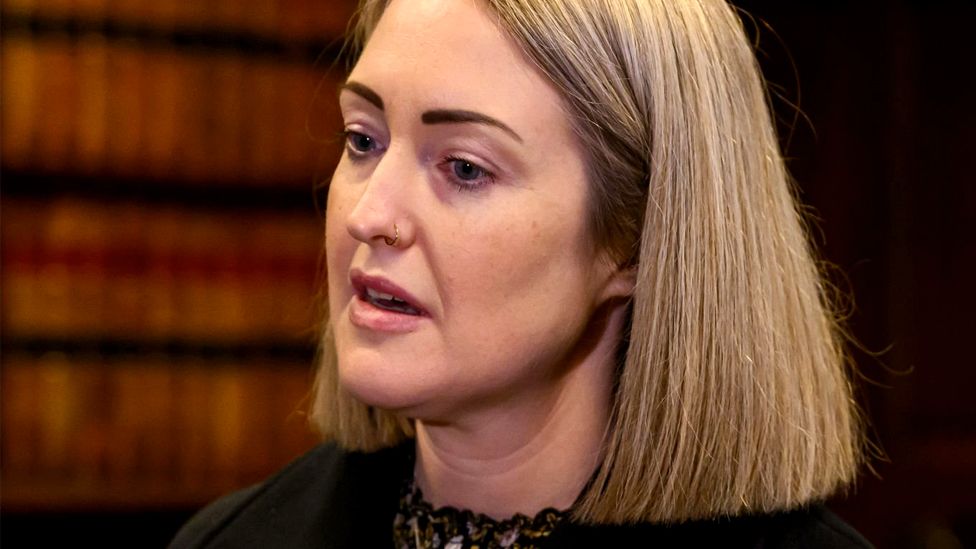ARTICLE AD BOX
 Image source, Getty Images
Image source, Getty Images
Esther Ghey is part of a campaign to put mindfulness on the national school curriculum
By James Gregory & Lou Newton
BBC News
The mother of murdered teenager Brianna Ghey says the Online Safety Act does not go far enough to protect children.
Esther Ghey told the BBC "horrible content" would still be seen by young people because she did not think it would be deemed as "harmful".
"The internet and social media is so vast, I think it would be so hard to police," she said.
The government said the law was "world-leading" and non-compliance could result in fines "in the billions".
Ms Ghey told BBC Radio 4's Today programme: "I'm all for free speech but some of the comments I've seen on social media posts and some of the articles… they're just hateful comments.
"The [Online Safety Act] is not going to protect children and young people from seeing that kind of horrible content because I don't think that would be deemed as harmful."
The act became law in October 2023, with the aim of making the internet safer for children.
It puts the onus on tech firms to take more responsibility for the content on their platforms in order to protect children from some legal but harmful material, as well as given the regulator, Ofcom, more enforcement powers.
Brianna, who was transgender, was 16 when she was murdered last February.
One of Brianna's killers, Scarlett Jenkinson, who was just 15 at the time, had been able to access videos on the so-called dark web - an encrypted internet browser.
Jenkinson had watched videos of the torture and murder of real people before she and her friend Eddie Ratcliffe, who was also 15 at the time, killed Brianna.
Ms Ghey said she found it "shocking" young people were able to access this type of content on the dark web, explaining that she thought it was a "bit of a myth".
"I just don't understand how things like that exist in the first place," she added.
Image source, Handout
Image caption,Brianna was stabbed 28 times in February last year
Since the trial, she has been calling for smartphones to be banned for children under 16 and told the BBC she thought young people, including Brianna before her death, were "addicted to their phones".
"The way they have been created, it's based on the [gambling model]," she said. "It's [about] having that constant gratification from people.
"When I was young, it was so much easier to parent. Now the introduction of smart phones and the access to the online world, social media, it's just made everything 10 times more difficult."
She said smartphone companies have a "moral responsibility" to protect young people from the dangers of the internet, and should not just be focused on profit.
"Maybe there would have to be a law just to make sure it was properly enforced," she added.
Ms Ghey discussed her ideas about teaching mindfulness in schools in a recent meeting with Labour leader Sir Keir Starmer, who she said had asked to see costings for the proposal.
She has already launched a local campaign in Warrington, which she says has raised £75,000 to get it in every school in the town, but wants to expand this to every institution in England.
She added that Sir Keir had not made a promise to ban smartphones for under-16s if Labour won the next general election, expected to be held later this year, but insisted she would "keep pushing".
A government spokesperson said the legislation required social media platforms to enforce their age restriction policies, protect children from harmful content and remove anything illegal.
"If they fail to do so, they will face fines that could run into billions of pounds and their bosses could face prison", the spokesperson said.
"Esther continues to show incredible compassion and strength in unimaginable circumstances and the government shares her determination to ensure our children are protected online."

 11 months ago
90
11 months ago
90








 English (US) ·
English (US) ·